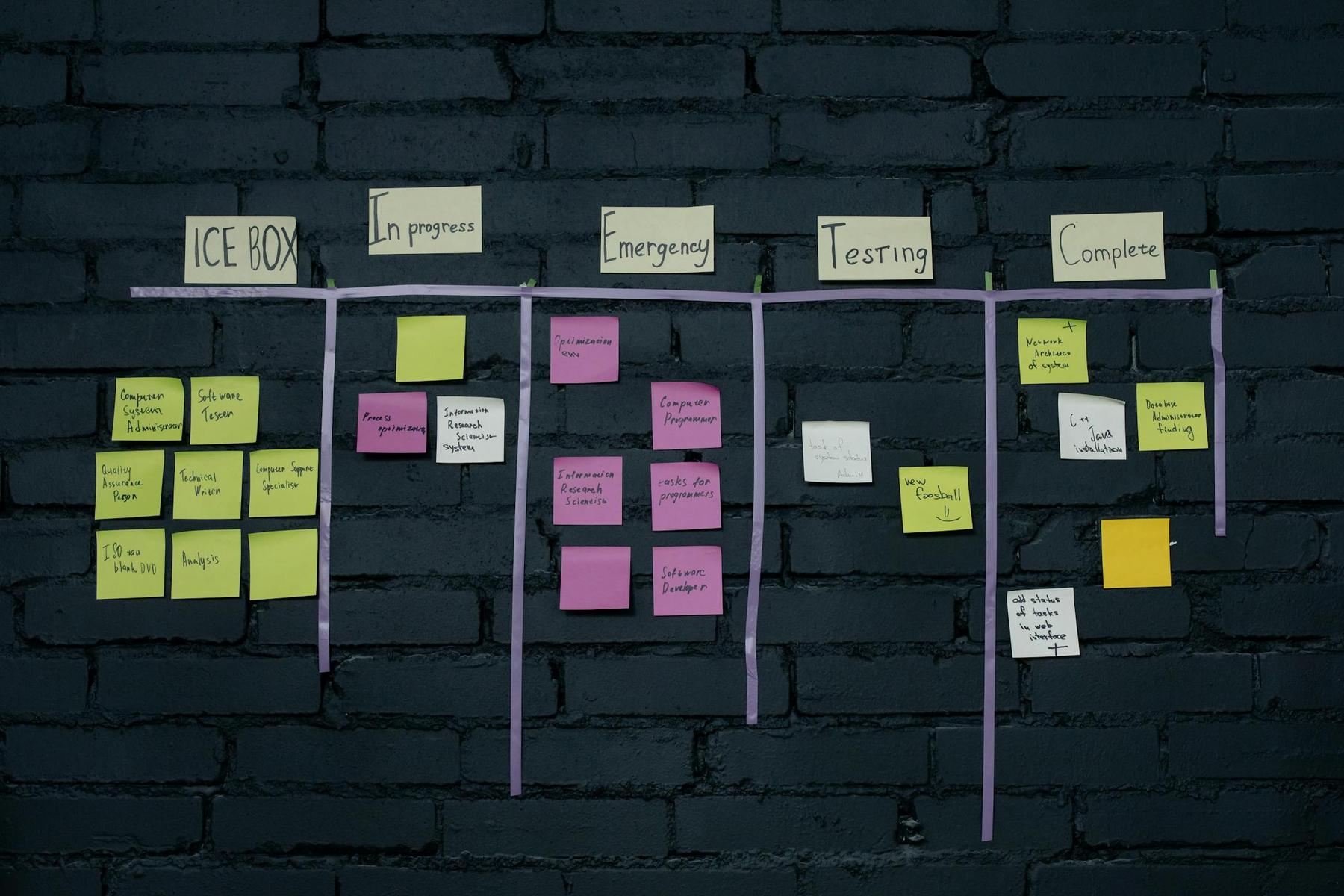In an era where uncertainty has become the only constant, the human capacity to bounce back from adversity stands as one of our most remarkable psychological phenomena. Whether facing personal setbacks, professional challenges, or global crises, some individuals demonstrate an extraordinary ability to not merely survive difficult circumstances, but to emerge stronger and more capable. This remarkable quality—resilience—has captured the attention of psychologists, researchers, and mental health professionals worldwide, leading to groundbreaking insights into how we can better understand and cultivate this essential human characteristic.
The study of psychological resilience has evolved dramatically over the past several decades, transforming from a relatively niche area of research into a cornerstone of contemporary psychological science. As we navigate the complexities of modern life in Australia and beyond, understanding the psychological perspectives on resilience becomes increasingly vital for individuals, communities, and organisations seeking to thrive in the face of adversity.
What Defines Psychological Resilience in Contemporary Research?
Psychological resilience represents far more than simply “bouncing back” from difficult experiences. Contemporary research defines resilience as a dynamic process involving positive adaptation despite exposure to significant adversity, trauma, tragedy, threats, or substantial sources of stress. This definition emphasises several crucial elements that distinguish resilience from mere survival or recovery.
The psychological perspective on resilience recognises it as a multifaceted phenomenon that encompasses cognitive, emotional, behavioural, and social dimensions. Rather than viewing resilience as a fixed personality trait, modern psychological frameworks understand it as a capacity that can be developed, strengthened, and refined throughout one’s lifetime. This perspective has profound implications for how we approach personal development, therapeutic interventions, and community support systems.
Research has identified that resilient individuals typically demonstrate several key characteristics: emotional regulation capabilities, cognitive flexibility, problem-solving skills, social connection abilities, and a sense of meaning and purpose. These characteristics work synergistically, creating a robust psychological foundation that enables individuals to navigate challenges effectively whilst maintaining their overall well-being and functionality.
The neurobiological underpinnings of resilience have also garnered significant attention from researchers. Studies indicate that resilient individuals often exhibit specific patterns of brain activity and structure, particularly in regions associated with emotional regulation, executive function, and stress response. This biological component of resilience interacts with psychological and environmental factors, creating a complex web of influences that determine an individual’s capacity to thrive under pressure.
How Do Different Psychological Theories Explain Resilience Development?
The development of resilience has been explained through various psychological theoretical frameworks, each offering unique insights into this complex phenomenon. Cognitive-behavioural perspectives emphasise the role of thinking patterns, beliefs, and behavioural responses in building resilience. According to this framework, individuals develop resilience by learning to identify and modify unhelpful thought patterns, developing effective coping strategies, and building behavioural repertoires that support adaptive functioning under stress.
Positive psychology approaches focus on strengths, virtues, and factors that contribute to human flourishing. From this perspective, resilience develops through the cultivation of positive emotions, engagement with meaningful activities, nurturing relationships, finding purpose, and achieving accomplishments. This framework suggests that resilience emerges naturally when individuals focus on building their inherent strengths rather than merely addressing deficits or vulnerabilities.
Developmental psychology offers another lens through which to understand resilience formation. This perspective emphasises the importance of early childhood experiences, attachment relationships, and developmental milestones in shaping resilience capacity. Research within this framework suggests that secure attachment relationships, consistent caregiving, and age-appropriate challenges during critical developmental periods create the foundation for lifelong resilience.
Systems theory approaches resilience from an ecological perspective, recognising that individual resilience develops within the context of family, community, cultural, and societal systems. This framework emphasises the importance of supportive social networks, community resources, cultural values, and institutional support in fostering resilience. The systems perspective highlights that building resilience often requires interventions at multiple levels, from individual skill development to community strengthening initiatives.
What Are the Core Components That Build Psychological Resilience?
Understanding resilience requires examination of its fundamental components, which research has consistently identified across diverse populations and contexts. These core components work together to create the psychological infrastructure that enables individuals to thrive despite adversity.
| Resilience Component | Key Characteristics | Development Strategies |
|---|---|---|
| Emotional Regulation | Managing intense emotions effectively | Mindfulness practices, breathing techniques, cognitive restructuring |
| Cognitive Flexibility | Adapting thinking patterns to new situations | Problem-solving training, perspective-taking exercises, cognitive restructuring |
| Social Connection | Building and maintaining supportive relationships | Communication skills training, community engagement, relationship building |
| Meaning-Making | Finding purpose and significance in experiences | Values clarification, narrative therapy techniques, spiritual practices |
| Self-Efficacy | Belief in one’s ability to handle challenges | Goal-setting, skill development, mastery experiences |
Emotional regulation stands as perhaps the most fundamental component of psychological resilience. This involves the ability to recognise, understand, and manage emotional responses in ways that support adaptive functioning. Emotionally resilient individuals can experience the full range of human emotions whilst maintaining their capacity for clear thinking and effective action. They possess skills for self-soothing, seeking appropriate support, and using emotions as valuable information rather than being overwhelmed by them.
Cognitive flexibility represents another crucial component, encompassing the ability to adapt thinking patterns and problem-solving approaches based on changing circumstances. Resilient individuals demonstrate mental agility, considering multiple perspectives, generating creative solutions, and adjusting their strategies when initial approaches prove ineffective. This cognitive adaptability enables them to navigate complex situations and find pathways forward even when conventional solutions are unavailable.
The social dimension of resilience cannot be overstated. Humans are fundamentally social beings, and our capacity to form and maintain meaningful connections significantly influences our ability to weather life’s storms. Resilient individuals typically possess strong social networks, effective communication skills, and the ability to seek and provide support when needed. They understand that resilience is not a solo endeavour but rather a collaborative process that unfolds within the context of relationships.
How Can Resilience Be Measured and Assessed Accurately?
The measurement of psychological resilience presents unique challenges due to its multifaceted nature and dynamic qualities. Researchers and practitioners have developed various assessment tools and methodologies to evaluate resilience across different populations and contexts, each with distinct advantages and limitations.
Self-report measures represent the most commonly used approach to resilience assessment. These instruments typically ask individuals to rate their agreement with statements related to various aspects of resilience, such as their ability to cope with stress, maintain optimism during difficult times, or recover from setbacks. Popular instruments include the Connor-Davidson Resilience Scale, the Brief Resilience Scale, and the Resilience Scale for Adults. Whilst these measures offer valuable insights into individuals’ perceptions of their own resilience, they may be influenced by social desirability bias or limited self-awareness.
Behavioural assessments provide another avenue for measuring resilience by observing how individuals respond to controlled stressors or challenges in laboratory or clinical settings. These approaches might involve presenting participants with problem-solving tasks, stress-inducing scenarios, or simulated adversities whilst measuring their physiological, emotional, and behavioural responses. Behavioural assessments offer objective data but may lack ecological validity, as laboratory conditions may not accurately reflect real-world stressors.
Longitudinal studies represent the gold standard for resilience assessment, tracking individuals over extended periods to observe their responses to actual life challenges and adversities. This approach provides rich insights into how resilience manifests across different life stages and circumstances, revealing patterns of adaptation that might not be apparent in cross-sectional studies. However, longitudinal research requires substantial resources and may be influenced by various confounding factors.
Neurobiological measures are increasingly being incorporated into resilience assessment, utilising brain imaging technologies, hormone measurements, and other physiological indicators to understand the biological underpinnings of resilient responses. These approaches offer objective data about the neurobiological processes associated with resilience but require sophisticated equipment and expertise to implement effectively.
What Role Does Cultural Context Play in Understanding Resilience?
Cultural context profoundly influences how resilience is conceptualised, expressed, and developed across different populations. What constitutes resilient behaviour in one cultural context may be viewed differently in another, highlighting the importance of culturally sensitive approaches to understanding and fostering resilience.
In Australian Indigenous cultures, resilience is often understood through the lens of connection to country, community, and cultural identity. The concept of resilience may encompass not only individual adaptation but also collective survival and the preservation of cultural knowledge and practices across generations. This perspective emphasises the intergenerational nature of resilience and the importance of cultural continuity in supporting psychological well-being.
Asian cultures frequently emphasise collective resilience and the importance of family and community support systems in overcoming adversity. The concept of “face” or social dignity plays a significant role in how challenges are approached and resolved, with resilience often manifesting through maintaining harmony and fulfilling social obligations despite personal difficulties. This cultural framework may prioritise endurance and acceptance over direct confrontation of problems.
Western cultures typically emphasise individual agency, self-reliance, and active problem-solving as key components of resilience. The cultural narrative often focuses on personal growth through adversity, with resilience viewed as an opportunity for self-improvement and character development. This perspective may emphasise optimism, goal-setting, and proactive coping strategies.
Understanding these cultural variations is crucial for researchers, practitioners, and policymakers seeking to develop effective resilience-building interventions. Culturally responsive approaches recognise that resilience interventions must align with the values, beliefs, and practices of the target population to be effective and acceptable.
How Does Resilience Manifest Differently Across Life Stages?
Psychological resilience manifests differently across various life stages, reflecting the changing challenges, resources, and developmental priorities that characterise different periods of human development. Understanding these developmental variations is essential for creating age-appropriate interventions and support systems.
During childhood, resilience often manifests through play, learning, and the development of basic coping skills. Children’s resilience is heavily influenced by their caregiving relationships, with secure attachments providing the foundation for later resilience development. Young children may demonstrate resilience through their ability to seek comfort, engage in play despite difficulties, and maintain curiosity about their environment even when facing challenges.
Adolescent resilience reflects the unique developmental tasks of identity formation, peer relationships, and increasing independence. Teenagers may demonstrate resilience through their ability to navigate social pressures, maintain academic performance despite personal challenges, and develop a sense of personal identity and values. The adolescent brain’s ongoing development presents both vulnerabilities and opportunities for resilience building.
Adult resilience encompasses the complex challenges of career development, relationships, parenting, and managing multiple responsibilities simultaneously. Adults may demonstrate resilience through their ability to maintain work performance during personal crises, adapt to major life changes, and provide support to family members whilst managing their own stress. The accumulation of life experience provides adults with a broader repertoire of coping strategies but may also involve more complex stressors.
Later-life resilience often involves adaptation to physical changes, loss of loved ones, and shifting social roles. Older adults may demonstrate remarkable resilience through their ability to find meaning in life experiences, maintain social connections despite losses, and adapt to changing capabilities whilst preserving their sense of dignity and purpose.
Building Resilience Through Evidence-Based Approaches
The practical application of psychological resilience research has led to the development of numerous evidence-based approaches for building and strengthening resilience across different populations and contexts. These interventions draw upon the theoretical foundations and empirical findings discussed throughout this exploration of psychological perspectives on resilience.
Cognitive-behavioural approaches to resilience building focus on helping individuals identify and modify thought patterns that may undermine their ability to cope effectively with stress. These interventions teach skills such as cognitive restructuring, problem-solving, and behavioural activation, providing individuals with practical tools for managing difficult situations. The emphasis is on building cognitive flexibility and developing more adaptive ways of interpreting and responding to challenges.
Mindfulness-based interventions have gained significant attention as effective approaches to building resilience. These programmes teach individuals to develop present-moment awareness, emotional regulation skills, and the ability to observe their thoughts and feelings without becoming overwhelmed by them. Research suggests that mindfulness practice can enhance emotional resilience by reducing reactivity to stressors and improving overall psychological well-being.
Social connection interventions recognise the crucial role of relationships in supporting resilience. These approaches may involve building communication skills, strengthening existing relationships, developing new social connections, or participating in community-based activities. The focus is on creating and maintaining supportive social networks that can provide practical and emotional support during difficult times.
Strengths-based approaches emphasise identifying and building upon individuals’ existing capabilities and resources rather than focusing primarily on deficits or problems. These interventions help people recognise their inherent strengths, develop these capabilities further, and learn to apply them effectively in challenging situations. This approach aligns with positive psychology principles and can enhance self-efficacy and confidence.
Understanding resilience from multiple psychological perspectives provides a comprehensive foundation for appreciating this remarkable human capacity. The research reveals that resilience is neither a fixed trait nor a simple skill, but rather a complex, dynamic process that can be understood, measured, and strengthened through evidence-based approaches. As we continue to face individual and collective challenges, this understanding becomes increasingly valuable for supporting human flourishing and well-being.
The psychological perspectives on resilience offer hope and practical guidance for individuals, communities, and organisations seeking to thrive in an uncertain world. By recognising resilience as a learnable set of skills and processes, we can work towards building more resilient individuals and communities, better equipped to face whatever challenges the future may hold.
What is the difference between resilience and simply coping with stress?
Resilience extends beyond basic coping to encompass growth, adaptation, and maintained well-being despite adversity. Whilst coping involves managing immediate stressors, resilience represents a dynamic process of positive adaptation that may result in enhanced functioning and personal development following challenges.
Can resilience be developed at any age, or is it primarily formed during childhood?
Research demonstrates that resilience can be developed and strengthened throughout the lifespan. Although early childhood experiences provide important foundations, adults and even older individuals can learn new resilience skills, modify existing coping strategies, and build supportive relationships to enhance their capacity to thrive.
How long does it typically take to build psychological resilience?
Building resilience is an ongoing process rather than a destination with a fixed timeline. Some resilience skills may be developed relatively quickly through focused training, while others require consistent practice and reinforcement over months or years, depending on individual circumstances.
Are some people naturally more resilient than others?
While genetic, developmental, and environmental factors may influence an individual’s initial resilience levels, research consistently shows that resilience can be learned and strengthened. Natural tendencies might impact the ease of developing resilience skills, but these skills remain accessible to everyone.
What role do Professional support services play in building resilience?
Professional support services provide valuable guidance, structured interventions, and personalized strategies for building resilience. Mental health professionals, counsellors, and specialists can offer evidence-based approaches tailored to individual needs and provide ongoing support throughout the resilience-building process.













